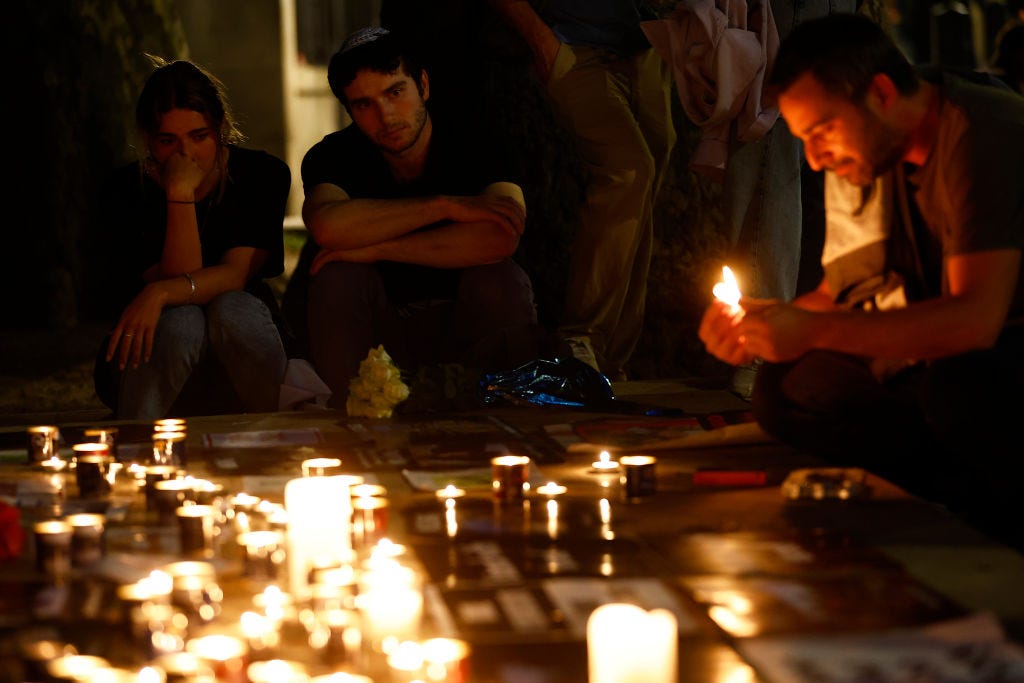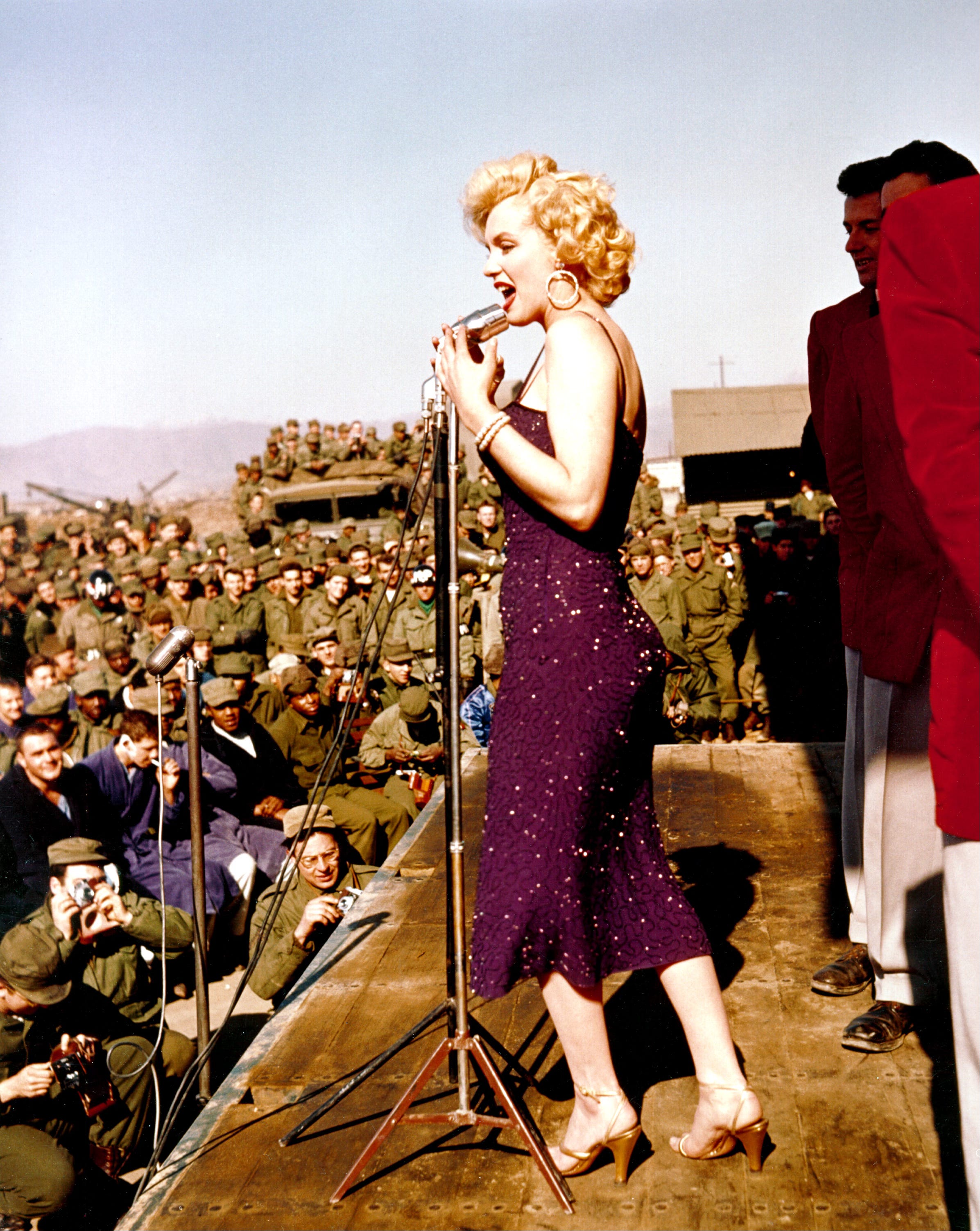Special note: This Sunday, Oct. 15, I’ll be out of the Anklercave and on stage at the Newport Beach Film Festival, hosting a Q&A with the very great filmmaker Jim Sheridan following a screening of In the Name of The Father. We’ll be talking about his storied career on the stage and screen working with the giants of Gaelic acting, the current state of Irish cinema and the remarkable journey he’s been on in the past decade, working on a true crime documentary about an unsolved murder case in his home country. Sheridan is one of my heroes of cinema and I’d love to see you there. Fifty Ankler subscribers can attend for free if they RSVP to this link with the code: ANKLER4NBFF. Come join us.This isn't an easy one to write. Beyond the same sadness and outrage shared by much of the globe, I don't have any particular brilliant insight into Mideast relations; no elegant solution that if it could just get enough retweets, would bring about peace on Earth. Unlike apparently everyone on social media, I am not a Mideast scholar. And I am a partisan of the notion that we in the pundit class should generally stay in the lanes of our direct experience and expertise. But on the way to filing another entry in the annals of "Why The Fools Can't Find a Business Model" — I found it a little hard to summon my usual righteous fury. More to the point, thinking about the state of the world right now, I find myself feeling that the role of Hollywood, and Hollywood's withdrawal from the front ranks, is not completely irrelevant here. I'm not saying making a decent reboot of Heathers is as urgent as a Middle East peace plan or halting the online reign of misinformation, but let's say it's the hem of that cloth. Some thoughts about where we are and what we can be doing during the difficult times ahead: In the Realm of DarknessNow, disclaimer and take this in because I'm only going to say this once: I am not equating the MAGA movement with the invasion of Ukraine with the terrorist attacks in Israel. Different things, vastly different levels of destructiveness so far — adjust your outrage to personal taste. (And if you don't believe any of the above are awful, all I can say is we live in different places and advise you to click away and seek out other columns. Plenty are available.) That said, all of the above breathe the same air that pours out of social media these days: an aura of nihilism — where objective reality is for suckers, and cruelty and rage are the undercurrent simmering beneath all. Nihilism and cruelty of course weren't invented alongside the iPhone, but with omnipresent social media they were given a habitat where they had no natural predators that allowed them to invade every corner of consciousness and existence as the devices colonized, more or less, all human endeavor. Surrendering Our SpaceIt wasn't always thus. You may recall in the days before the iPhone, people watched shows and movies, movies and shows, and while Newton Minnow may have thought television was a vast wasteland, and few gave sitcoms credit for raising the national IQ, no one thought media as it existed was a toxic cesspool, bulldozing all sense of humanity and common civic standards. If the offerings could get a little bland — just try sitting through the Oscar winners of the 1980s today — they had the advantage of not bringing about mass despair and rage spirals. And before the advent of social media, television could produce something as idiosyncratic and complex as The Sopranos even. This was the media landscape that Hollywood strode atop and if it could have been better, it also could have been much much worse. Hollywood was never the "moral conscience" of the planet (to say the very least) but it was a general comforter, inspiration, and of course, the entertainer of a good segment of humanity. It was where the world could turn when it needed to unburden from its woes for a few minutes, and not feel like it had just crawled through raw untreated sewage for doing so. It also was a great connector, where people around the globe could speak the same language around films and TV that became hits not just in the U.S., but everywhere — whether those movies were bought on a bootleg VHS in a market 7,000 miles away or first viewed in plush cinemas. Then came the internet — voracious, anti-moral, cynically manipulated by duplicitous founders and easily infested by the worst elements of civilization. And Hollywood ceased to be the general arbiter of entertainment but a boutique brand within it, overwhelmed by the new language and desperate to keep up and win its favor. Like the Roman senators, before the specter of Caesar, we trembled in the face of the internet and social media:
As Hollywood lost its position, it lost its nerve. It stopped speaking up for itself. In its hopelessness, it stopped even trying to speak to the world, and became obsessed with its own problems and shortcomings. It walked away from its role as the world's comforter — a big job to give up. The products it put out became increasingly cynical and small. Big-hearted stories to bring the world together were replaced by endless runs of action universes and endless strings of sequels. More and more of what we put out seemed factory-made, its humanity, the humanity of the storytelling eclipsed. Originality became an increasingly rare proposition even as Hollywood's output exploded in the Streaming Wars. Highly targeted, short-lived, pop-up shows engineered to catch a millisecond of buzz before expiring, to rarely be thought of again, like the male honeybee that dies after mating with its queen. Into this retreat poured the sludge of social media — some great, some fun, some useful and lots awful. From the influencers of Instagram to the misinformation campaigns on Facebook, it all came in one deadening firehose. And the result of the entire media landscape was to reinforce a great big sense of meaninglessness and give lots of room for the worst in humanity. And since that time, society across the globe has become horrifying in ways we couldn't have begun to imagine just 15 years ago. Take Back The LightAnd now when tragedy comes, yet again, Hollywood collectively has absolutely nothing to say. Will it speak out on the tragedy, one friend asked? Hollywood couldn't even come out against Covid. Remember the days of the old USO? Try and picture the hellish problems you’d have today of mainstream stars heading to a war zone being briefed how not to answer any of the zinger questions they’d get hit with. (Are you supporting violence? Which side are you on?) Are there any stars even left that social media hasn’t turned into polarizing pawns in the culture war? Besides, maybe, Taylor Swift? I don't say that Hollywood could stop the Ukraine invasion or end terrorism or make politicians suddenly speak only the truth. But the media landscape of the past decade-plus has been a hothouse to stimulate the growth of anti-humanist monsters. The human race communicates through analogy and storytelling. That is how we learn to relate to others and discover a world beyond our own eyelids. When the planet's leading storytellers lose faith in their stories, and no longer have the confidence to make the world laugh, or cry, or thrill to new and different tales, the bond that connects people is shattered. And nothing is bigger than our own experience. Hollywood: in these dark times, what we do matters. The media space was Hollywood's property not too long ago. If we're going to survive, we have to figure out how to take it back. And if humanity is going to survive, it needs storytellers who dream big to show us why this thing called the human experience still means something. Follow us: X | Facebook | Instagram | Threads Got a tip or story pitch? Email tips@theankler.com. To advertise to our 60,000 subscribers, email info@theankler.com. ICYMI
Strikegeist, a (free!) strike newsletterThe Optionist, a newsletter about IP |



